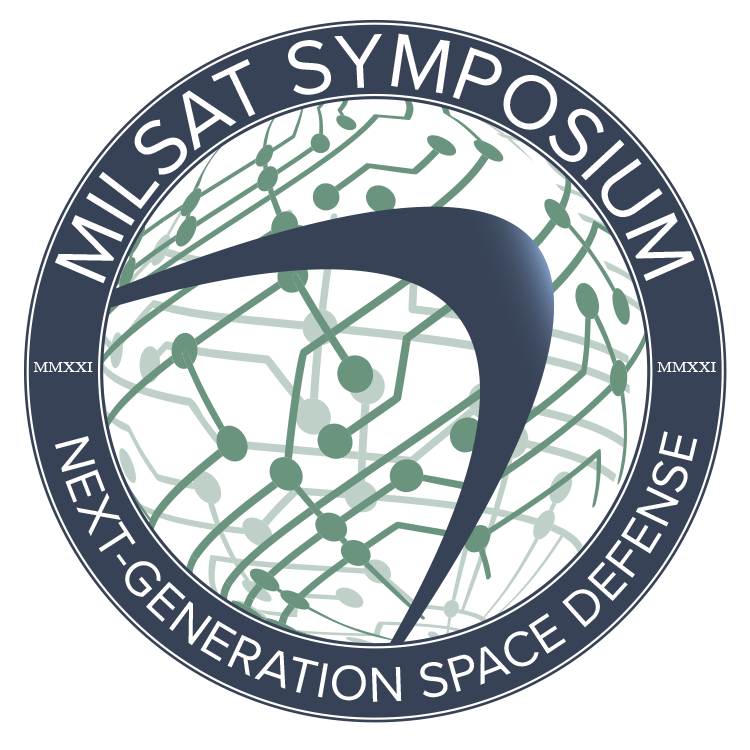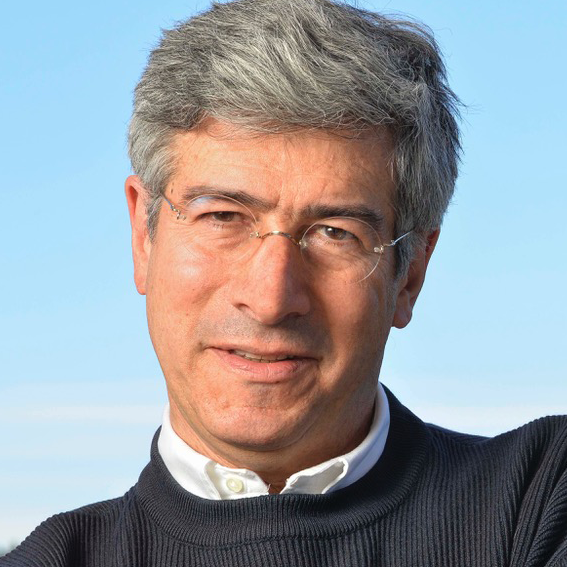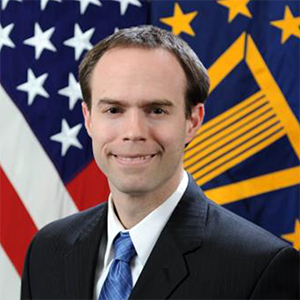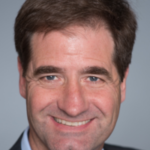

 Chris Quilty
Chris Quilty
Chris is the president of Quilty Analytics, an independent research and consulting firm that provides strategy, competitive benchmarking, financial analysis, and investment diligence on all aspects of the Satellite & Space industry.
Prior to establishing Quilty Analytics in 2016, Chris served as a sell-side research analyst with Raymond James for 20 years, publishing hundreds of company-specific, macro, sector, and thematic research reports on the industrial, defense, space, wireless, and communications industries. Chris is widely-acknowledged as the leading Wall Street analyst on the Satellite & Space sector and has participated in 30 capital markets transactions over the past five years valued at over $2.5 billion
Chris received a BS degree in Systems Engineering from the United States Naval Academy in 1989 and an MBA from the University of Chicago in 1994.
 Bruce Cahan
Bruce Cahan
Bruce Cahan is a Lecturer in Stanford University’s Department of Management Science & Engineering (MS&E), an Instructor in at Stanford’s Hasso Plattner Institute of Design (known as the d.school), a CodeX Fellow at Stanford’s Center for Legal Informatics, a Stanford mediaX Distinguished Scholar, a Faculty Fellow with Stanford’s Center for Human Rights and International Justice and Affiliated Faculty with Stanford’s Graduate School of Business’ Corporation and Society Initiative.
Bruce researches, teaches, designs and applies new theories for creating financial and
insurance marketplaces that improve transparency, fairness and regional quality of life systems. Bruce’s courses at Stanford include: Sustainable Banking (CEE 244A), Understanding the Buy Side of Wall Street (MS&E 449), Ethics of Finance and Financial Engineering (MS&E 148) and Redesigning Finance (d.school)
Bruce is also CEO and co-founder of Urban Logic, a nonprofit that harnesses finance and technology to change how corporate and government systems think, act and feel. He is an Ashoka Fellow social investment entrepreneur. Bruce’s current projects at Urban Logic range from creating a commodities exchange for outer space (the Space Commodities Exchange), to establishing a bridge between the formal and informal economies of developed and developing countries.
Mr. Cahan practiced finance law serving major corporate and government clients at the international law firm of Weil Gotshal & Manges in New York City for 10 years, and was merchant banker in Hong Kong (2 years), prior to pursuing his financial innovation research and technology projects through Urban Logic.
Bruce’s earned his Bachelor of Science in Economics from The Wharton School at The University of Pennsylvania, and his Juris Doctor from Temple Law School. Bruce is licensed as a lawyer in California, New York and Pennsylvania.
 Preston Dunlap
Preston Dunlap
Mr. Preston C. Dunlap is the Chief Architect of the Department of the Air Force. First to hold this position, Mr. Dunlap is charged with working across the Air and Space Force, and in partnership with the Department of the Navy and Army, to transform technology development and acquisition so the Air Force not only designs, develops, and buys the right mix of future capability but does so more rapidly and with the power of interoperability. Key family of systems initiatives include Multi-domain Operations, Advanced Battle Management System, and Next Generation Air Dominance.
Prior to this position, Mr. Dunlap was the Executive for National Security Analysis of the Johns Hopkins University Applied Physics Laboratory, the nation’s largest University Affiliated Research Center.
There he oversaw national security defense and intelligence programs at all levels of classification and managed an extensive and diverse organization of program managers, technologists, analysts, and operators. He led programs in support of the Vice President of the United States, Cabinet Secretaries, the Secretary of Defense, and the Director of National Intelligence. Mr. Dunlap served on the corporate Executive Leadership Team of the Laboratory. At the request of Congress, he also testified before the full House Armed Services Committee.
Before joining the Laboratory in 2014, Mr. Dunlap was a career member of the Senior Executive Service and served four Secretaries of Defense. He held the roles of Director of Program Analysis, Chief of Staff to the Senate-confirmed Director of Cost Assessment and Program Evaluation, Senior Analyst for Intelligence, Surveillance, and Reconnaissance (ISR) and Space Programs, and Deputy Director of the Simulation and Analysis Center. He shaped the Department of Defense five-year multi-billion dollar budget plans as well as associated Intelligence Community and National Nuclear Security Administration plans.
Mr. Dunlap led the Long Range Strike Front End Assessment and started the B-21 bomber program as well as future weapons, hypersonics, intelligence, electronic warfare, and communications capabilities for Secretary Gates and Secretary Panetta. He served in a lead role of the Strategic Choices and Management Review for Secretary Hagel where he identified options and risks required to meet the Budget Control Act that would reduce the budget by over $50 billion per year. He also participated in the 2006, 2010, and 2014 Quadrennial Defense Reviews.
Prior to government, Mr. Dunlap held various roles in the private sector as an early member of a rapidly growing technology startup company as well as an agile software development firm.
He earned a Master of Science degree with honors in Operations Research and Management Science from George Mason University and a Bachelor of Arts degree in both Computer Science and Political Science from Duke University. Mr. Dunlap is Lean Six Sigma certified and is a graduate of the Harvard University National Security Senior Executive program and the Federal Executive Institute and served on the Board of the Massachusetts Institute of Technology Seminar XXI program. Mr. Dunlap’s awards include the Secretary of Defense Medal for Meritorious Civilian Service and multiple citations of both the Secretary of Defense Medal for Exceptional Civilian Service and Secretary of Defense Award for Excellence.
 Tom Gillespie
Tom Gillespie
Tom Gillespie serves as a Partner on In-Q-Tel’s Investment Team and as Investment Lead for In-Q-Tel’s Field Technologies Practice, where he is responsible for identifying technologies that address challenges faced by the Intelligence Community. He is the Investment Team partner associated with IQT’s commercial space initiative, CosmiQ Works, and he has led a number of IQT’s investments in commercial space ventures, including launch vehicles, small satellite constellations, and space situational awareness. In addition, he has led IQT investments in the areas of robotics, materials, power sources, and autonomous systems, as well as several analytics investments.
Prior to IQT, Gillespie was a Strategy Consultant at Booz Allen Hamilton, serving clients in the financial services, aerospace, and government (national security and defense) sectors. Previously, he co-founded LaunchFuel, a venture commercialization firm that created, developed, and advised early-stage technology businesses; Gillespie also directed numerous business and technology strategy projects with Global 2000 clients for AT&T Solutions. Earlier experience includes positions in international privatization and the United States Congress, where he focused on financial services, telecommunications, space, and foreign affairs issue areas.
Gillespie earned a B.A. from Stanford University and an M.B.A. from the Wharton School of the University of Pennsylvania.
 Tess Hatch
Tess Hatch
Tess is a vice president at Bessemer Venture Partners fostering entrepreneurship of frontier technology, specifically the commercialization of space, drones, autonomous vehicles, and the future of agriculture and food technology. She wants to invest in technology and people who believe as strongly as she does that frontier technology will develop solutions for societal problems.
Tess earned a Bachelor’s degree in aerospace engineering from the University of Michigan and a Master’s degree in aeronautics and astronautics engineering from Stanford. She went on to work for Boeing and then SpaceX where she worked with the government on integrating its payloads with the Falcon9 rocket. She remains close to her alma mater through co-teaching a class at Stanford for professors interested in commercializing their research, serving on the board of advisors for the Stanford Technology Ventures Program and founding the Stanford Aero/Astro Alumni Association. Tess was recently named Forbes’ 30 Under 30 in Venture Capital.
Tess is passionate about space exploration and imagines a future where we all travel to space. She hopes to make the trip herself soon.